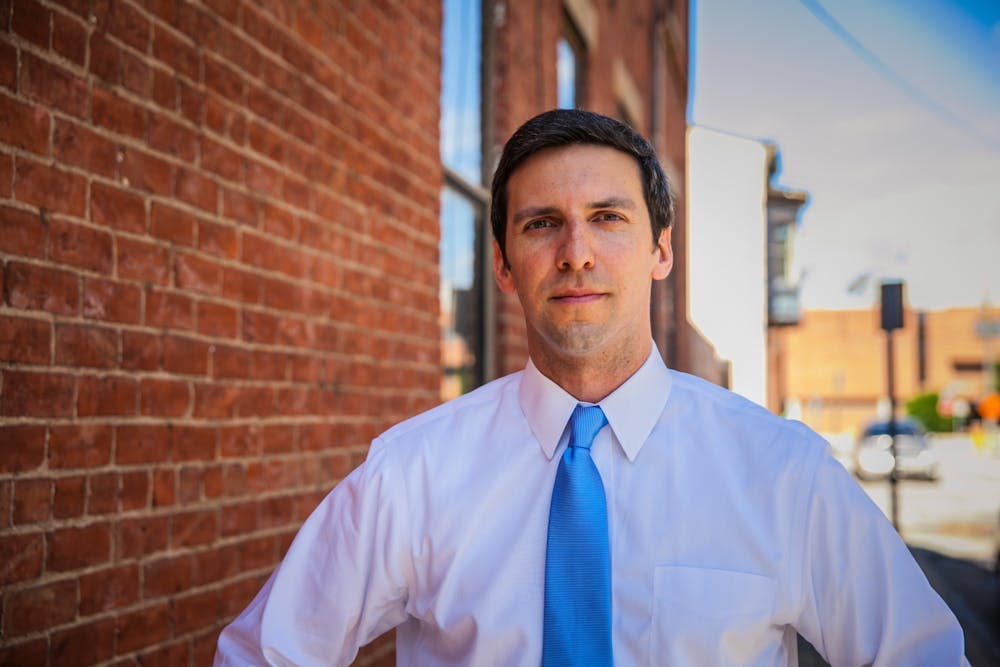On Nov. 23, Ohio Attorney General Dave Yost announced his intent to suspend Cincinnati City Council member P.G. Sittenfeld ’07, who was arrested on Nov. 19 for wire fraud, bribery, and attempted extortion.
In response to the corruption charges, Sittenfeld posted an official statement to Twitter on Nov. 20, remarking, “I am innocent … My public service has always been guided by doing what’s best for Cincinnati.”
Sittenfeld was elected to the Cincinnati City Council in 2011, becoming the youngest elected member in its history. Since then, the Democratic rising star has figured prominently in Cincinnati politics, passing legislation that requires landlords to give residents multiple payment options and beginning a significant initiative to help Cincinnati’s elderly population.
Sittenfeld ran unsuccessfully for U.S. Senate in 2016, losing to former Ohio governor Ted Strickland in the Democratic primaries. In July 2020, he announced his candidacy for the 2021 Cincinnati mayoral election, where he was the favorite among four declared candidates.
During his time at the University, Sittenfeld was an English major, first-year class president, and a writer for The Daily Princetonian. In an interview with the ‘Prince’ in 2011, Sittenfeld noted that “the ‘Princeton spirit’ that good people with good intentions could make a political difference” inspired him to seek office.
Earlier this month, the ‘Prince’ named Sittenfeld one of the 29 “Most Influential Princetonians in Politics 2020.”
The evidence for Sittenfeld’s corruption charges comes from an undercover FBI agent, who claims to have caught Sittenfeld taking bribes for council votes with audio evidence from multiple meetings and phone calls, detailed in the full indictment. The agent was disguised as a real estate agent trying to obtain Cincinnati council approval to develop property.
After the agent’s council approval efforts, made between 2017 and 2018, proved unsuccessful, according to the indictment, Sittenfeld privately told the agent, “I can move more votes than any other single person.” He then sold the agent his vote and Cincinnati council influence to obtain approval for the property development request.
During 2018 and 2019, Sittenfeld allegedly accepted a total of $40,000 from the agent on three separate occasions.
Instead of directly pocketing the money, as stated by David DeVillers, the U.S. attorney for the Southern District of Ohio, “This went into a political slush fund.”
As stated in the indictment, Sittenfeld said about the fund, “I think frankly a lot of people don’t even know I have it.”

Sittenfeld’s office did not respond to request for comment by the time of publication.
If convicted, Sittenfeld could face up to 20 years of imprisonment.
According to NBC News, Sittenfeld is facing widespread pressure, including from Councilwoman Betsy Sundermann, to resign his council position.
“We can’t have him proposing legislation and voting on things if he took bribes,” Sundermann told NBC in an interview.
Sittenfeld’s Twitter statement, however, indicates no plan to resign. He ended by writing, “I intend to keep … fighting as your elected Council Member.”
Sittenfeld’s arrest represents the third recent corruption case within the nine-member Cincinnati City Council.
In 2019, Cincinnati Councilwoman Tamaya Dennard was accused of corruption. She pled guilty in June 2020 and stands to be charged up to 20 years in prison and a fine of up to $250,000.
A few months later, Cincinnati Councilman Jeff Pastor faced a similar accusation. He allegedly received $55,000 in bribes from 2018 to 2019. He has pleaded not guilty and is currently on voluntary suspension from the council. If convicted on all 10 counts, he could face up to 90 years in jail.
Now, with Sittenfeld’s arrest, one-third of the Cincinnati City Council has been arrested for corruption.
This has led to concern about the integrity of the council and their actions in the Cincinnati community.
One such community member is David Niven, a political science professor at the University of Cincinnati, who believes, “There’s an enormous pressure on the remaining members of the council.”
“The lesson the community would rightly take is a cynical one,” Niven told NBC News. “It almost doesn’t matter who you vote for, their service to you may not be honest.”
Sundermann agreed that Cincinnati residents “don’t trust any of us.”
“It’s going to take a lot of rebuilding trying to fix this,” she said.








